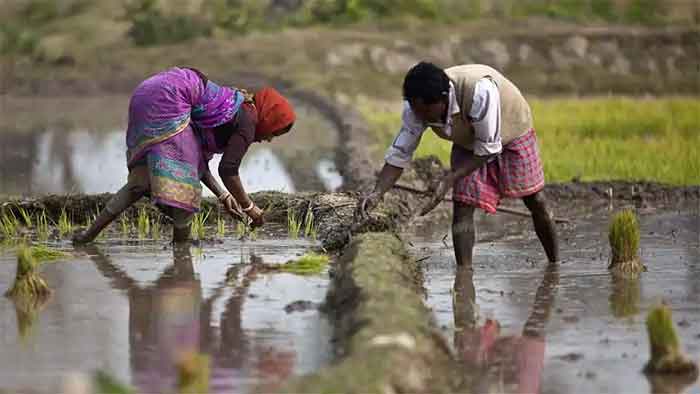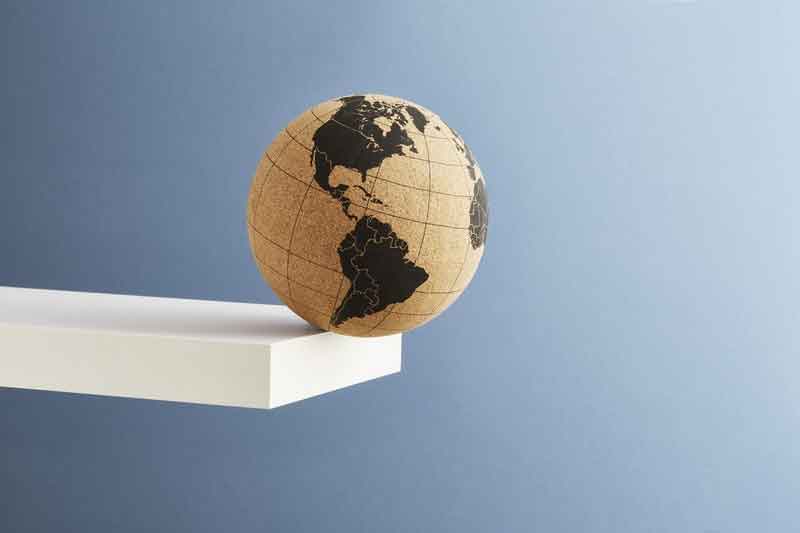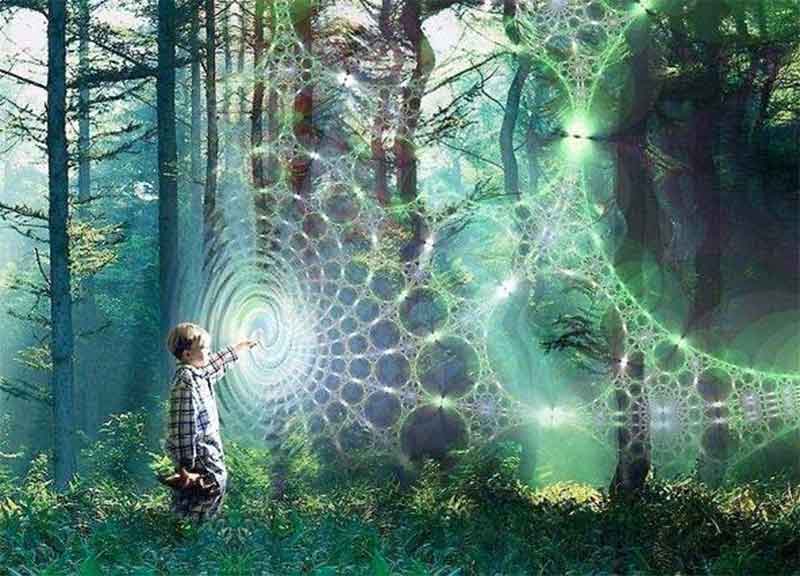
Gold has long been considered the most important form of wealth. Diamonds are another. When oil became the most widely used source of energy, then people started referring to oil as the black gold. At various times since then, different important minerals have been highlighted as being very valuable.
But the more these minerals are extracted in any country, the lesser their value that remains with the country. What is more, the very process of their extraction often involves so much damage to the environment of the region. The profit from the mining of these minerals and their trade is often concentrated in the hands of a few rich persons and entities. The wealth of these minerals is often concentrated in a few regions, but there is no assurance at all that the people of these regions will benefit from this. In fact extraction of the more valuable minerals has frequently involved much violence, displacement and hazards, often directed at local people, hence the use of expressions like ‘blood diamonds.’
On the other hand there is another form of wealth available in abundance. The more care with which it is used, the more its value can increase and people can go on using with proper care without reducing its worth. For all who recognize its true worth and use it properly and with due caution benefits will come not just for today but for future as well. This most abundant wealth accessible to all is soil ( known more commonly by local names of mitti or maati in India).
Till about a century ago there was widespread appreciation of the great worth of soil. A reflection of this was that whenever one had to take a pledge of honor and self-respect, this was frequently in the name of soil ( mitti ki saugandh). A pinch of soil would be taken in hand to signify honor and commitment. This was no empty talk—this was matched by the reality of a lot of care and commitment to maintaining and protecting the quality of soil. But as people started giving less attention to care of soil , the references to soil in daily talk also suffered a degradation.
The most precious contribution of soil is of course associated with providing the most essential need of food. The more care we take of soil and protect its natural fertility the more assured we can be of getting healthy , safe and nutritious food on sustainable basis. The less care we give the lesser will be the ability of soil to provide this most valuable service to humanity and all forms of life.
If looked after properly, soil is easily the most abundant provider of sustainable and highly creative, satisfying livelihoods. If soil is eroded and its quality, fertility decline, then its ability to provide sustainable livelihoods declines, and the livelihoods which still depend on it start getting less creative and more precarious.
Soil is home to billions of creatures such as earthworms and micro-organisms, very welcome and useful inhabitants of this planet who contribute to its welfare without asking for anything in turn by indulging all the time in activities which contribute to the fertility , porosity and overall well-being of soil. They demand no feed or fodder from human beings, they merely ask for a right to living in the soil undisturbed to make their own arrangements. But human beings have denied even this basic right to their best friends, their most undemanding friends. By indiscriminate use of agro-chemicals and in other ways, human beings have been killing and destroying billions and billions of these humble and sincere friends.
Good care of soil is also very important for ensuring adequate availability of that other most basic need—water. If porosity and stability of soil can be maintained by proper care—earthworms can again be very helpful in this—then rainwater and moisture can be much better conserved.
Care and protection of soil was always very important, but in times of climate change this importance has increased further. It has always been known that the key to maintaining the natural fertility of soil is its organic content, obtained by decomposition of various biological materials including fallen leaves, other plant residues and excreta of various life forms particularly those which dwell in soil itself. But now in times of climate change the importance of this organic content of soil is also enhanced in other important ways in terms of absorbing carbon and hence contributing to checking climate change. Since soil is spread all over, with its better care and increase of organic content over a number of years, we can not only contribute much to improving prospects of healthy food and satisfying sustainable livelihoods, this can also contribute much more to checking climate change.
This protection of soil should be confined not just to rural areas but should extend to urban areas where the craze for indiscriminate concretization of land should be given up and there should be many more green spaces and gardens created not by chemical fertilizers and pesticides but in natural ways.
Soil is thus clearly the most important wealth of any country. While millions of people are willing to slog, cheat, rob or even kill for gold, diamonds and cash, unfortunately the realization of the importance of soil does not get adequate attention and instead of increasing care of soil recent decades have witnessed not just increasing neglect but also increasing , relentless destruction of soil and soil-organisms. The decreasing number of farmers and gardeners who still continue to take care of soil are being scorned and neglected. The family farms and farming communities which alone are capable of taking care of soil are being pushed aside by big corporate interests with their heavy machines and bagfuls of agro-chemicals, mounting nothing less than an assault on soil health and on soil organisms who create this soil health.
Clearly big efforts have to be made to protect soil, the most precious wealth of all nations and of world, and for this farmers, gardeners, scientists and citizens who care should all raise their voice before it is too late.
Bharat Dogra is a journalist and author. His recent books include Planet in Peril and Protecting Earth For Children.
GET COUNTERCURRENTS DAILY NEWSLETTER STRAIGHT TO YOUR INBOX















































